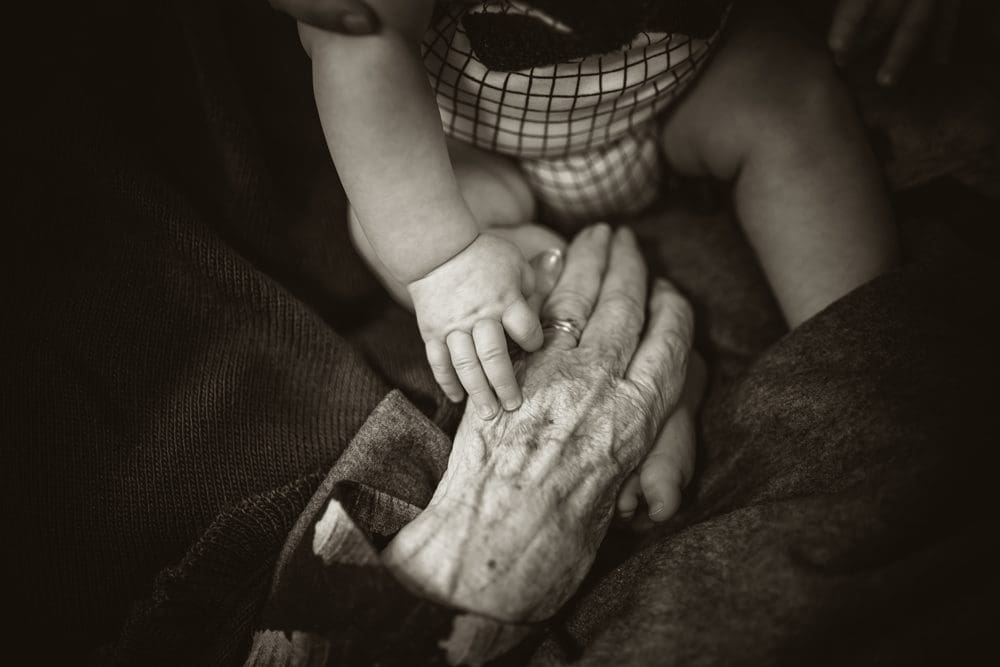Trauma affects us all. Until recently, we thought of trauma as an individual experience. But sometimes, the traumas of our parents, grandparents, and even ancestors still affect us in ways we might not realize. These patterns then translate into behaviors that become engrained. As we learn more about how generational trauma creates chaos and emotional dysregulation, we can try to break these toxic patterns.
What is generational trauma?
Trauma happens when we experience something distressing. Traumatic events can range from smaller occurrences, such as fighting with a partner or being catcalled, to large-scale events such as the death of a parent, going through a natural disaster, or witnessing extreme violence.
Trauma affects everyone differently, and for some people, even smaller traumas have rippling effects throughout their lives. When trauma is generational, a family engages in patterns of behavior that repeat generation after generation. Unhealthy coping mechanisms then become learned behavior, and the cycle repeats.
For example, incestuous abuse tends to recur throughout a family structure because of desensitization, silence, and an acceptance of the cycle. Generational trauma is particularly prevalent in minority populations because their trauma is systemic, externalized, and out of their control.
Some causes of generational trauma include:
- Racial, cultural, and religious genocide
- Enslavement
- Natural disasters and famines
- War
- Forced migration
- Forced birth
- Experiencing and witnessing abuse or violence
- Poverty
- Systemic oppression and discrimination
What are the signs of generational trauma?
Because generational trauma exists through entire families and cultures, its symptoms can be different from individual trauma. Often, there are collective signs, such as:
Emotional withdrawal
A family with generational trauma may be unable to discuss feelings. For them, showing or talking about emotions is a sign of weakness. It’s better to be numb than to admit to deeper feelings of shame, guilt, distress, depression, or anxiety. This creates difficulties with healthy communication.
Unhealthy boundaries
A family might be overly protective of everyone in an attempt to stay safe. This becomes a problem when there isn’t an outside threat and parents involve themselves too much in the lives of their children. This can also create an insular family in which anyone outside isn’t to be trusted. A family outlook like this breeds conflict and feelings of powerlessness.
Difficulty forming relationships
When outside people are a threat, family members most likely struggle with forming new relationships. Learning to trust and be emotionally vulnerable is difficult when you’ve grown up in an environment where that was frowned upon or forbidden.
Persistent anxiety and depression
Often, people with generational trauma struggle with mental health issues, such as anxiety and depression. They likely have a heightened stress response and go into fight-or-flight mode more easily. They’ve also witnessed family behaviors related to mental health struggles and internalized them, such as an inability to get out of bed, take care of daily tasks, and emotionally regulate.
Breaking the cycle
While generational trauma might feel inescapable, recognizing the signs and effects is the first step to changing it. Experts are continuing to research how trauma affects our bodies and genes in the long term. This, in turn, is educating the community at large about what generational trauma is, which is a major step forward in resolving it.
More and more people are working with therapists to address their generational trauma. Trauma-focused therapies can target the roots of your trauma, educate you about what happened to your family, and help you develop positive coping mechanisms. Support groups and community resources are another great way to find people similar to you with whom you can build relationships and know you’re not alone.
To find out more about how therapy can help you break the cycle of generational trauma, please reach out to us.
Home
Services
Insurance
Therapists
Contact
Mindworthy Therapy
info@
mindworthytherapy.com
847-497-5730
1933 N. Meacham Rd.
Suite 200
Schaumburg, IL 60173

Designed By:
Farm it Out! Design, Inc.

